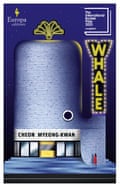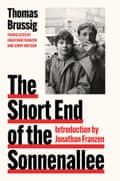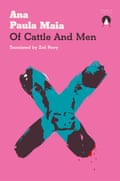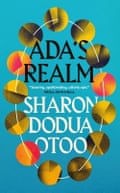
Whale by Cheon Myeong-Kwan, translated by Chi-Young Kim (Europa Editions, £14.99)
This eccentric debut novel, now shortlisted for the International Booker prize, has oodles of character, as well as oodles of characters. It largely concerns the antics of 6ft-tall Chunhui and her mother Geumbok. Everyone is described with cartoonish physicality: Geumbok has an “exceptionally wide rump” and a scent that “made men’s groins bulge despite themselves”, and the groins are pretty detailed, too: “If you have a ruler handy, take a look at how long that is.” When Geumbok discovers movies from the “Beautiful Country America”, she resolves to build a cinema – shaped like a whale. The chaotic story succeeds by black wit, even the worst things delivered with brio. Later on, Geumbok becomes a man. Her life is “filled with inexplicable complexity and irony” – just like this extraordinary book.

The Short End of the Sonnenallee by Thomas Brussig, translated by Jonathan Franzen and Jenny Watson (4th Estate, £14.99)
Co-translated by the American novelist, this is the story of teenager Micha Kuppisch, who in 1980s Germany lives at the “wrong end” of the three-mile-long Sonnenallee – a street divided by the Berlin Wall – where the residents can see the tantalising west. There are tussles with the Stasi, but Brussig favours the gentle comedy of the GDR’s citizens bumbling along day to day. Micha’s friend Frizz, unable to obtain a verboten Rolling Stones album, sulks that “wanting something is more interesting than having it” anyway. Micha doesn’t agree; he’s in hot pursuit of “beautiful, enigmatic” Miriam. “People in the West have a whole different way of kissing,” she teases him. “I really wish I could show somebody.” This is an entirely charming tale of “rich memories” and “making peace with the past”. Who needs the Stones anyway?

Of Cattle and Men by Ana Paula Maia, translated by Zoë Perry (Charco, £11.99)
This short sharp shock of a book brings a surprise with every new page. It’s set in a Brazilian slaughterhouse run by Senhor Milo; next door is the shiny new hamburger factory that receives its wares – “all that white reflects a peace that doesn’t exist”. At the heart of the story is Edgar Wilson, stun operator, who is troubled by the look in the eyes of the cows he kills: “Inside them is only darkness, and it cannot be trespassed.” Then cows start to disappear, seemingly by suicide. Equal parts Cormac McCarthy and Magnus Mills, it starts as a workplace caper (separating Lebanese cows from Israeli ones: “those cows are enemies”) then turns bloody (“A vulture ate [his left eye] while his right eye watched”). It’s a fresh and spirited report on how civilisation has done nothing to tame humanity’s worst instincts.

Ada’s Realm by Sharon Dodua Otoo, translated by Jon Cho-Polizzi (MacLehose, £16.99)
There’s no faulting the ambition of British author Sharon Dodua Otoo, writing here in German. Her debut novel features linked characters from 1459 to 1945, and includes maths genius Ada Lovelace having an affair with Charles Dickens, the Portuguese conquest of west Africa, and prostitution in Buchenwald, all narrated by a wandering spirit that occupies inanimate objects. Then it springs ahead to 2019 (“Boris fucking Johnson won the election”). Being so wildly busy, not everything is covered in depth (Otoo’s heart seems to be with the 19th-century Ada), but the novel is fast-moving and never dull, all in the service of highlighting the injustices faced by women through history, and acknowledging humans as one people rather than different categories. Oh, and God is a Scotswoman. It’s that sort of book.
No comments:
Post a Comment